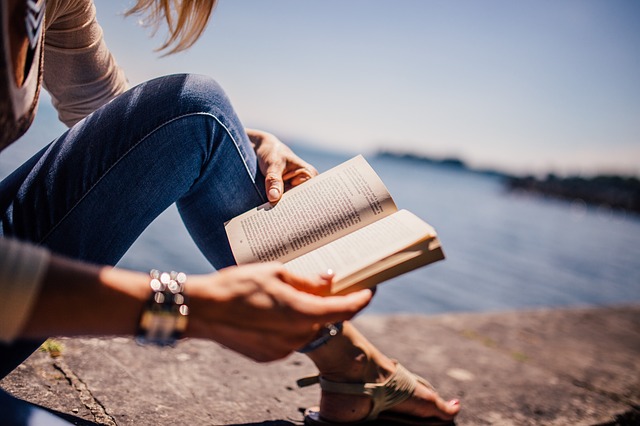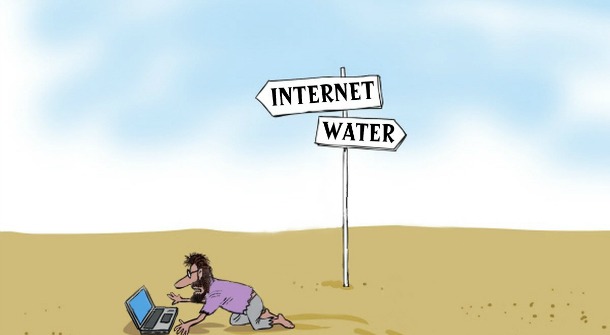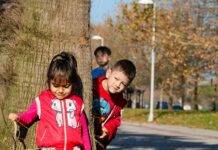“We are all born with a divine fire in us. Our efforts should be to give wings to this fire and fill the world with the glow of its goodness.” – A.P.J. Abdul Kalam (Wings on Fire).
As the German philosopher, Heidegger puts it, “Human beings are thrown into the world”, thereby raising enigmatic questions about the ‘Being’ . Our journey of ‘Being’ begins with the recognition of the ‘Other’ through communication and meaning making. In most cases our school education becomes a ‘legitimate source’ which provides the initial map for navigation. Hence, over centuries, education has been considered a powerful tool to unearth the possibilities, however, if not taken care of, becomes a coercive force of repression. Since the time of Ancient Greek philosophers to the 21st century, the idea of an education system has been deliberated upon. Be it Plato’s prescriptive notion of philosophical education as a prerequisite for the attainment of ‘fair and just’ temperament, or the independent de- colonised States appointing commissions to give recommendations on education policies.
Èmile Durkheim, the French Sociologist, in his work, “Education: Its nature and its role”, also invokes the idea of ‘education not being left to the arbitrariness of an individual but to be regulated by the state in order to disseminate the core ideas of Being’. Such an approach then raises questions about the identity of ‘self’. Is it defined by the state, society or the individual? What role does education play in understanding our notion of self? How can education system ensure a holistic development of the self? Hence, such questions also imply that at a deeper philosophical level, the discourse on education is related to the existential question of “I” which is the “self” in relation to social structures and institutions.
The initial sight of education system is a primary school. The lightness of being, innocent laughter and the wondering eyes of children, characterise a classroom. Primary task of the educators then, is to carefully tend to their inquisitiveness. Educators have an important role in moulding the conscience of the child through various means. Information about the different subjects, occupies major chunk of the school timetable, which is necessary, but not sufficient. In this age of ‘information boom’ the challenge is not the accessibility of information, but its ‘correctness’ and ‘verifiability’. Therefore, the centres of education bear the onus to ensure the latter. Among many of the skills that we acquire while growing up, discussions about the developmental changes in our body, on many occasions, have remained on the margins. This is because of the filter that society applies in classifying topics/issues as a taboo, in the name of ‘apparently maintaining the sanctity of tradition’. We fail to realise that such an approach far from ‘protecting’ us, makes us more vulnerable due to unawareness. “Child Sexual Abuse” therefore, is one of the offences to which many children become victims, mainly because of their lack of awareness about the physical being. Hence, it becomes necessary for us to make child aware about their ‘self’ being defined not just by his/her name, parents, place of birth or any other social labels, but also being inextricably linked to their safe physical well-being.
It is a pity that often a discussion on offences related to “sexual abuse” in adults and children gains momentum in the mainstream discourse only when crime rates have already surpassed the threshold. Although, reports suggest that largely the number of cases recorded under Protection of Children from Sexual Offences Act 2012 (POCSO) have reduced from the year 2014 to 2017, cases pending in the judicial courts remain around 1.5 to 1.6 lakhs. This year (2019) the government passed the amendment to POCSO, including death penalty in cases of child sexual abuse and stringent penal mechanisms to prohibit child pornography. Protection of Children from Sexual Offences Act 2012 was legislated by virtue of India having ratified the “United Nations Convention on Rights of Children (CRC) in 1992”. Article 19 (1) of the Convention on Rights of Children (CRC) clearly states that- “States Parties shall take all appropriate legislative, administrative, social and educational measures to protect the child from all forms of physical or mental violence, injury or abuse, neglect or negligent treatment, maltreatment or exploitation, including sexual abuse, while in the care of parent(s), legal guardian(s) or any other person who has the care of the child” (source: https://www.ohchr.org/en/professionalinterest/pages/crc.aspx). The merit of any legislation depends on it’s execution. The first step towards execution is to adopt measures for spreading awareness about the issue. This process of awareness becomes even more critical when the target group comprises of children at an innocently impressionable age, that is,
under the age of eighteen. In such a scenario, schools become the major, and in some cases the only free and safe space for discussion on “bodily development and safety”.
Mostly children in primary and middle schools experience changes not only in themselves but also begin to notice them in others. It is in this phase that the curiosity about changes have to be informed from credible sources. While many governmental and non- governmental organisations are engaged in awareness campaigns, all of them face the challenge about: “How to deconstruct the complex ideas of ‘consent and personal boundary’ to simple relatable facts for children?” Recently, while conducting workshops on awareness about ‘Child Sexual Abuse’ in Municipal Corporation Schools of Delhi, as a volunteer, I faced the same dilemma. The main objective of the workshop was to familiarise children with the vocabulary of sexual development. In this regard, instances from kid’s popular TV shows and folklore characters, provided conceptual aid to convey the notion of ‘Puberty’. Even the example of watching a seed grow into a tree with branches and leaves, allowed children to relate with the bodily changes occurring in them while growing up to be an adult. Any process of effectively imparting information, begins with the acknowledgement of the asset their recipient already possesses. Therefore, when I asked about their ‘superpower’, the school children resounded in unison to say— ‘Our Brain’. Such interactions gave me an opening point to further sharpen their instinctual capacities with pictorial descriptions and short theatrical acts. Meaning of what constitutes “Private body parts” and why, through different everyday examples of ‘right and wrong cases’, enabled children to develop a sense of ‘safe and unsafe touch’. Since sexual abuse is a sensitive issue, it was an imperative to strike a balance between spreading awareness about possible cases of abuse and rekindling a level optimism to be safe. So, each session was a well balanced with facts, relatable description and participative activities to retain the attention span of children.
Furthermore, a bird’s eye view of the cases recorded under POCSO clearly reflects the concentric circles of vulnerability that one is exposed to by virtue of their ascriptive identities and social location. Hence, implying that children growing up in sites of urban- rural confluence have often become victims of sexual abuse. These Municipal Corporation schools mostly have children coming from the nearby peri-urban areas, hailing from migrant labour families in Delhi. Matters related to Child Sexual Abuse are very precarious because largely the perpetrators have been the ‘known members’ of family, extended family or the neighbourhood. Thus, making it a herculean task for me, as a volunteer to explain the members who can be included in the child’s circle of trust and safety. Again a theatrical act depicting two friends playing together was used to showed them, that any action which inflicts hurt/pain on either one of them by the other, is wrong. Thus, conveying that yes, familiarity is comforting, but not necessarily safe at all times.
Another indispensable aspect of this entire venture was to impart the formula of: learning to say- ‘No’ – ‘then getting away from the perpetrator’- to ‘finally speak up’. This helps any child entrapped in a case of sexual abuse to powerfully respond to the situation. Here, we also need to understand that the last phase of ‘calling out’ or ‘speaking up’ about the horrendous incident demands the child to be equipped with proper vocabulary and gather the courage to approach his/her trusted guardian. In fact, analysis of the acquitted cases of child sexual abuse reveals that the inability of the child to describe details of the incident has resulted in multiple acquittals. The essence of the workshop was thus, to destigmatize the possible victims and give them a sense of reassurance by laying out redressal channels available to them, like identifying guardians who can be approached for help, Child helpline number- 1098, etc; being a few out of the many.
Amongst a plethora of social evils plaguing our society today, child sexual abuse is one of the most heinous crimes because it jeopardises the psyche and growth of ‘being’ at a very impressionable phase in life. In many cases, again due to lack of awareness, the survivor eventually learns that his/her insecurities manifested in adulthood are stemming from an incident of being sexually abused during their formative years of childhood. Lack of sensitive engagement with children about the issue, creates confusion and pushes them in a realm of dark oblivion. Therefore, School education systems, being embedded with an implicit trust in the educator, serves as a fertile ground for introducing challenging issues, and demystifying the so-called: ‘social taboos’ in our society. Thus, ensuring that the ‘I’ of the ‘self’ is nurtured not in ghettoed notions of learning, but in the free flow of ideas, questioning, dissent and simultaneous (un)learning.
Sneha Panna, a student of Jawaharlal Nehru University is currently pursuing a Master’s degree in the Centre for the Study of Social Systems.










